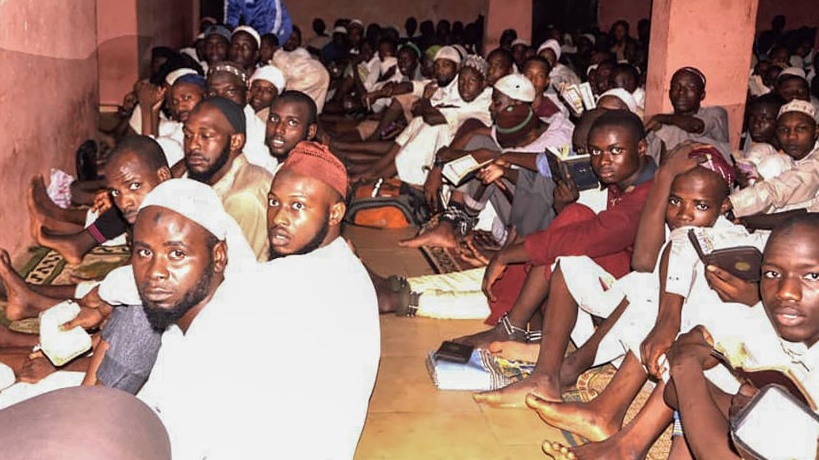Update (October 21, 2019): Police in Nigeria’s Kaduna city said they rescued nearly 300 men and boys from a facility calling itself an Islamic school. According to Reuters and CNN, the 300 were mostly children who were held in chains.
As the story made headlines across the world, a wave of scrutiny has embroiled dozens of Islamic schools in controversy.
Since the 300 victims were released, nearly 1,000 more men and boys have been released from similar schools. Many of the children told local reporters they were sexually abused and left with scars from beatings.
There are nearly 10 million students attending Islamic schools across Nigeria which have traditionally been a popular avenue for parents living in poverty hoping to get their child an education. The schools were seen as a path toward honorable professions and an opportunity to receive food and housing.
However, in recent years stories have emerged showing the schools have become havens for human trafficking, sexual abuse and outright slavery.
On Saturday, police managed to release another 147 students from a school in Kaduna. According to The Washington Post, just three days earlier more than 500 students had been freed from a school in Katsina state.
On October 13, another group of 67 was freed from a school in Daura.
"Any time we complain, they will punish us and curse our parents," one young man told Voice Of America following the raid on the school in Daura.
"Your parents will bring food for you, they will not give you. They send you money, but they will not give it to you. When they come to visit you, they will not allow them [to] see you. They will tell your parents that they are praying for you, and none of that is actually true. That is what we go through daily here. We get caned and punished daily," he added.
President Muhammadu Buhari has been under immense pressure from the country’s citizens to address the issue and close down many of the schools.
Buhari, who is from Katsina, said he plans to ban the schools. However, he has refrained from passing any laws, opting instead to ask police forces to raid the worst-run institutions.
"The schools will certainly continue. I mean they're very, very deeply ingrained in northern Nigeria culture," John Campbell, the Ralph Bunche senior fellow for Africa policy studies at the Council on Foreign Relations, told Voice Of America.
Original: On Friday, police in Nigeria said they rescued more than 300 men and boys from a facility purporting to be an Islamic school in the northern city of Kaduna.
According to Reuters and CNN, the 300 were mostly children who were held in chains. Many of the children told local reporters they were sexually abused, leaving them with scars from beatings.
The alleged school, named Imam Ahmad Bun Hambal Centre for Islamic studies, was found to be housing hundreds of children in dire conditions.
Kaduna state's police commissioner, Ali Janga, said in an interview with Reuters the children were dehumanized during their stay at the facility.
"This place is neither a rehab or an Islamic school because you can see it for yourselves. The children gathered here are from all over the country…some of them were even chained," he said.
"They were used, dehumanized, you can see it yourself," he added.
Kaduna Police spokesman Yakubu Sabo told CNN they raided the facility once they realized it was not actually a school. The children, as young as 13 from Burkina Faso, Mali, and Ghana, were being held in chains there.
"They had scars and some marks of torture and violence on them. They were pleading they should be taken out of the place and they have been evacuated from that facility," Sabo said in an interview with CNN.
In northern Nigeria, where poverty is rife, it is common for families to send their children to Islamic schools called Almajiris. These schools often take in troubled children or those who come from disadvantaged families.
About 10 million children attend the Islamic schools, according to Muslim Rights Concern (MURIC), a Nigerian human rights organization.
For decades these facilities have been dogged by allegations that they are hubs for human trafficking, sexual abuse and outright slavery.
President Muhammadu Buhari admitted the facilities were a growing problem for the country's Muslim community. His administration floated the idea of shutting the schools down earlier this year.
Sabo told Reuters he doesn't know how long the boys were in the facility, but that the government was now providing them with food.
The boys are being kept at a local stadium and will soon move to another facility on the outskirts of the city.
The school's owner and six teachers were arrested by police after the raid. According to police, the school's owner claimed he was trying to "reform" the children being held at the center.
